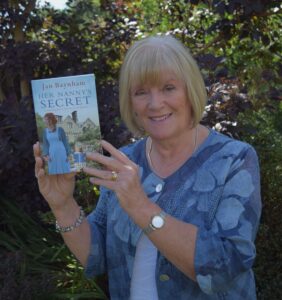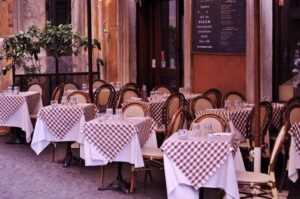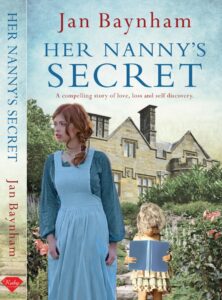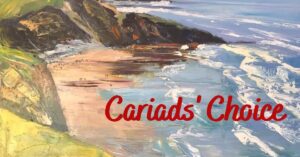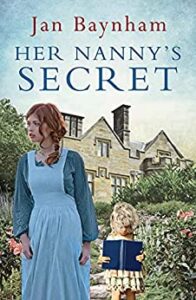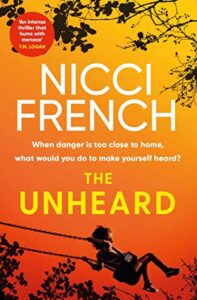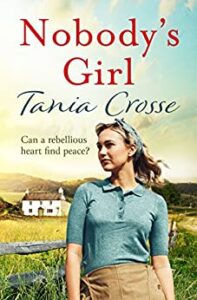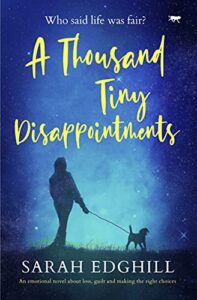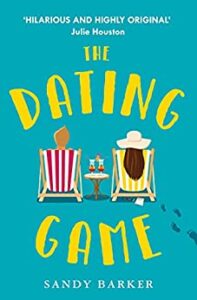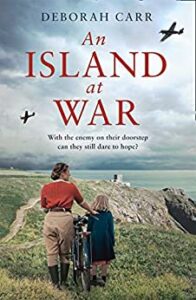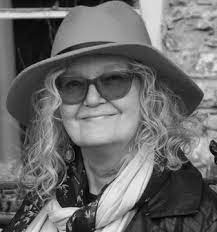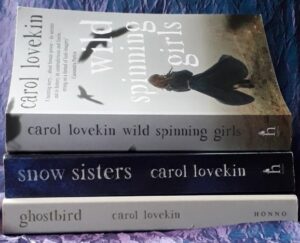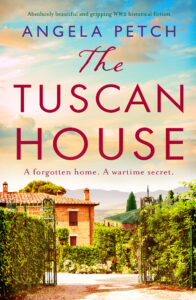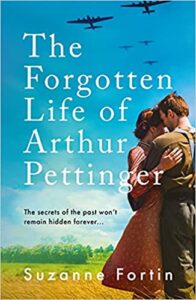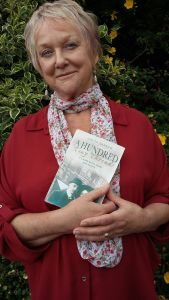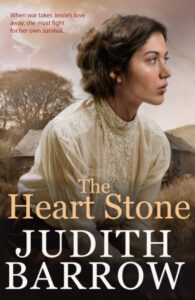The Secret Sister by Jan Baynham, reviewed by Jane Cable
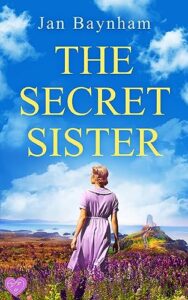 This beautiful book transported me not only to Sicily, but to mid Wales during the Second World War, and the claustrophobia of the small communities where everyone knew everybody else’s business. It is here the book starts, in 1943, when Italian prisoner of war Carlo meets Sara, who had been trapped in an abusive marriage.
This beautiful book transported me not only to Sicily, but to mid Wales during the Second World War, and the claustrophobia of the small communities where everyone knew everybody else’s business. It is here the book starts, in 1943, when Italian prisoner of war Carlo meets Sara, who had been trapped in an abusive marriage.
The Secret Sister is unusual for a dual timeline because the whole wartime narrative is played out before the story moves on to 1968, but I can see it had to be this way for the story to work, and the author definitely made the right decision to do so. It is in this second part of the book that we travel to Sicily and Baynham brings the island to life in a wondrous whorl of colours, tastes and sensations. I was absolutely transported there and now cannot wait to visit the island.
I thoroughly recommend this emotional tale of family secrets and enduring love.
The Sea Sisters Swimming Club by Sue McDonagh, reviewed by Morton S Gray
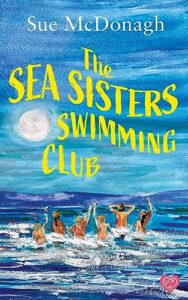 Fran is a survivor and a woman cast adrift by a heart attack which cut short her police career. She is finding the adjustment to life outside of the force difficult and unsettling. She really doesn’t know who she is at the beginning of the novel. An opportunity to house sit by the sea in Wales offers her the chance to explore options for her future and rediscover her spirit.
Fran is a survivor and a woman cast adrift by a heart attack which cut short her police career. She is finding the adjustment to life outside of the force difficult and unsettling. She really doesn’t know who she is at the beginning of the novel. An opportunity to house sit by the sea in Wales offers her the chance to explore options for her future and rediscover her spirit.
Wyn is also wounded by life after an accident changed him forever both mentally and physically. He agrees to teach Fran to swim and they get ever closer, but he is hiding secrets of his own and has a needy ex-wife.
Enjoyed the references to the Art Hotel encountered in other Sue McDonagh books and the comradery of the sea sisters. I loved some of the secondary characters too – Elin, Gavin, Caitlin. And the novel made me want to enjoy coffee and cake by the sea, even if I don’t venture into the waves beyond paddling, but who knows I may get braver like Fran after being shown a glimpse of possibilities by this book.
A feel good, inspiring read which made me want to read more of Sue McDonagh’s novels.
The Lost Heir by Jane Cable, reviewed by Kitty Wilson
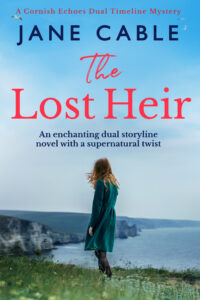 The Lost Heir is a dual timeline story that flits between Regency Cornwall and Cornish life in 2020. For the historical element, Jane Cable has taken her location and characters straight out of the Cornish Archives and built a world around them that you can absolutely believe to be true, or at the very least, wish it was.
The Lost Heir is a dual timeline story that flits between Regency Cornwall and Cornish life in 2020. For the historical element, Jane Cable has taken her location and characters straight out of the Cornish Archives and built a world around them that you can absolutely believe to be true, or at the very least, wish it was.
Jane Cable meshes history, romance, and the supernatural and touches on subjects that are far from easy to write about, rape, the scandal of illegitimacy, the limitations placed on women in Regency times, the lockdowns of recent years; and yet each and every storyline is written with an insight and sensitivity that pulls the reader thoroughly into the world inhabited by these characters.
It is the descriptions of Cornwall however that set this book far above others of a similar vein. I was galloping across the cliffs with William, sat with Harriet as the oil-lamps flickered and I found myself escaping to this book whenever I had a few spare minutes, racing through the story desperate to know how Franny would resolve her situation, keen to know if the modern-day romance could possibly play out as I wished it to.
I thoroughly enjoyed this novel and if you too want to escape to Regency Cornwall, then I highly recommend that you do so with this beautifully captivating, insightful and evocative book.

